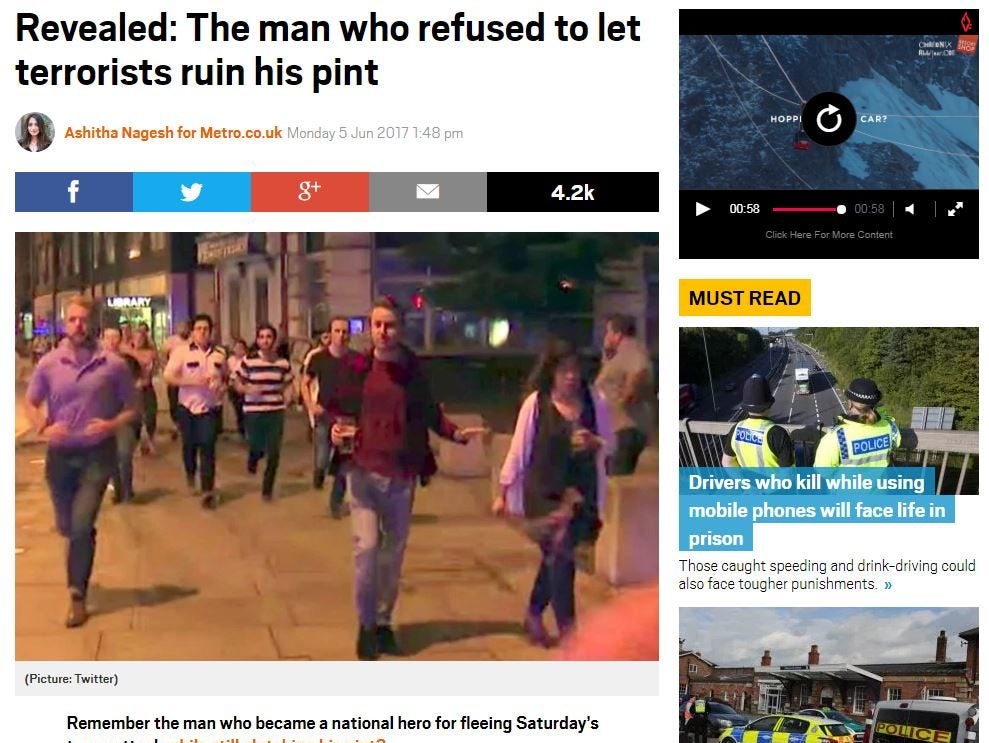
A woman who shared a viral image of her brother calmly fleeing the London Bridge terror attack with a pint of beer has complained its use by three news websites breached the Editors’ Code.
Katherine Armstrong posted the image of Paul Armstrong on Facebook after it had been widely shared on social media in the aftermath of the fatal attack in June.
Armstrong “tagged” eight friends in the post to draw their attention to it.
It was picked up by a journalist friend of one of the eight and a story identifying the man first appeared in the Liverpool Echo before it was picked up by The Sun, Mirror and Metro websites.
- The Sun story used the headline: “LONDON’S PRIDE: Reveller who fled London Bridge terror attack with pint in hand ‘identified’ as Liverpool man Paul Armstrong”
- The Metro story ran the headline: “Revealed: The man who refused to let terrorists ruin his pint”
- The Mirror’s headline read: “London’s new pint-clutching, terrorist defying-national hero is apparently from Liverpool – and close to being identified.”
The Metro and Mirror included comments from Armstrong’s post, which read: “So that guy with the pint? Yes, that’s the elusive Paul Armstrong. That’s what happens when you’re a Scouser paying London pint prices.”
Armstrong complained to the Independent Press Standards Organisation (IPSO), which regulates all three titles, that their articles breached accuracy (1) and privacy (2) clauses in the Editors’ Code of Practice.
She claimed she had not shared her comments publicly, but acknowledged that up to 1,358 people may have been able to view the post on the social network.
The news websites all claimed they had based their reports on information published in another newspaper and so had not sourced it in a manner which had intruded into the complainant’s privacy.
There was no complaint made against the Echo at the time of writing.
Armstrong made the accuracy complaint on the grounds that she had been “speculating on the identity of the man pictured” at the time of writing the Facebook post. She said that while it had been reported accurately, no further steps were taken to verify her claim.
IPSO’s complaints committee ruled that “the fact the complainant’s brother was, or appeared to be, the person photographed, was not private information about her” and that her name had not been reported nor anything that identified their relationship.
IPSO also ruled that the “nature of the information and the manner in which it had been previously circulated” meant Armstrong did not have a reasonable expectation of privacy in relation to it.
The committee added that the websites had “accurately reported the complainant’s Facebook post” and made clear where claims had been made in another publication.
The complaint was not upheld.
IPSO does not rule on copyright issues.
Email pged@pressgazette.co.uk to point out mistakes, provide story tips or send in a letter for publication on our "Letters Page" blog
